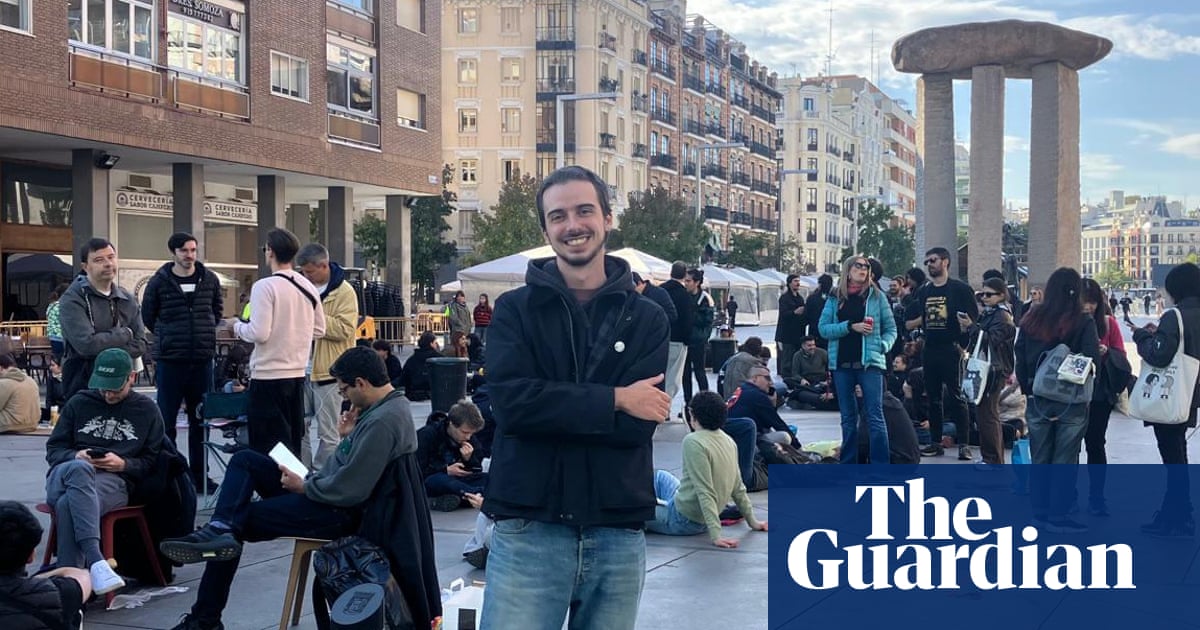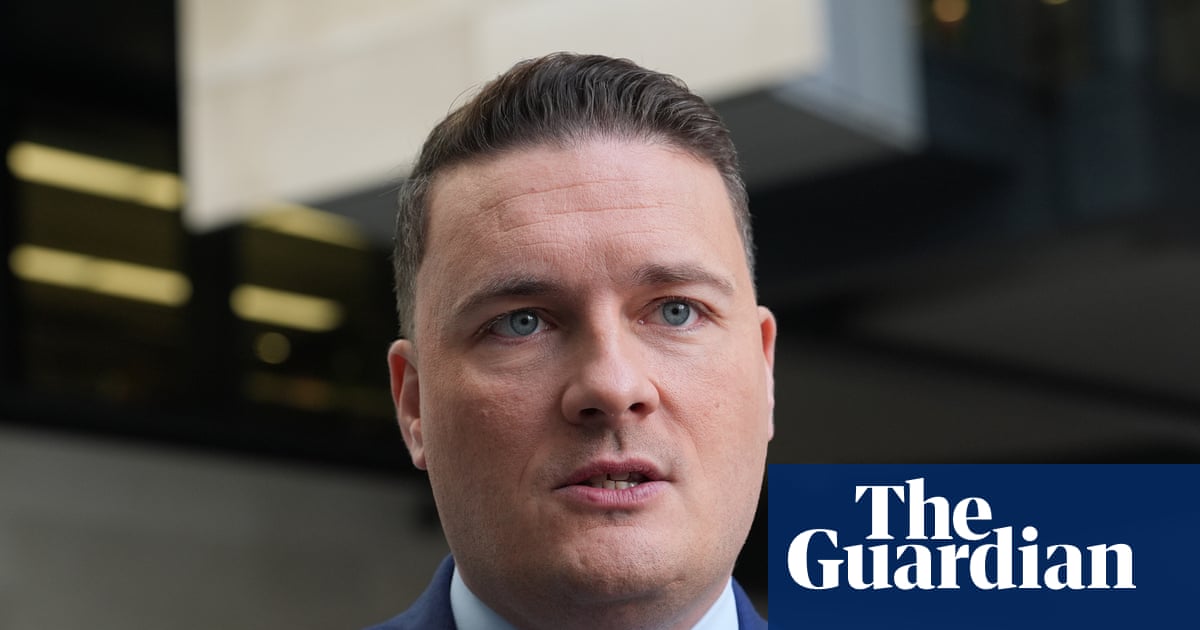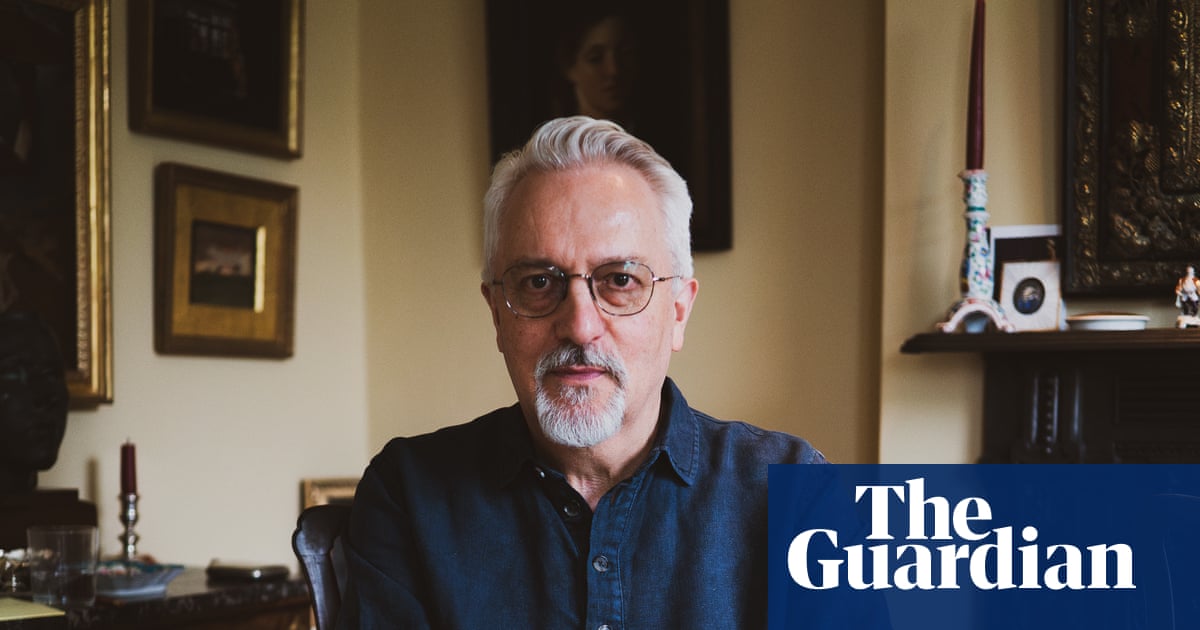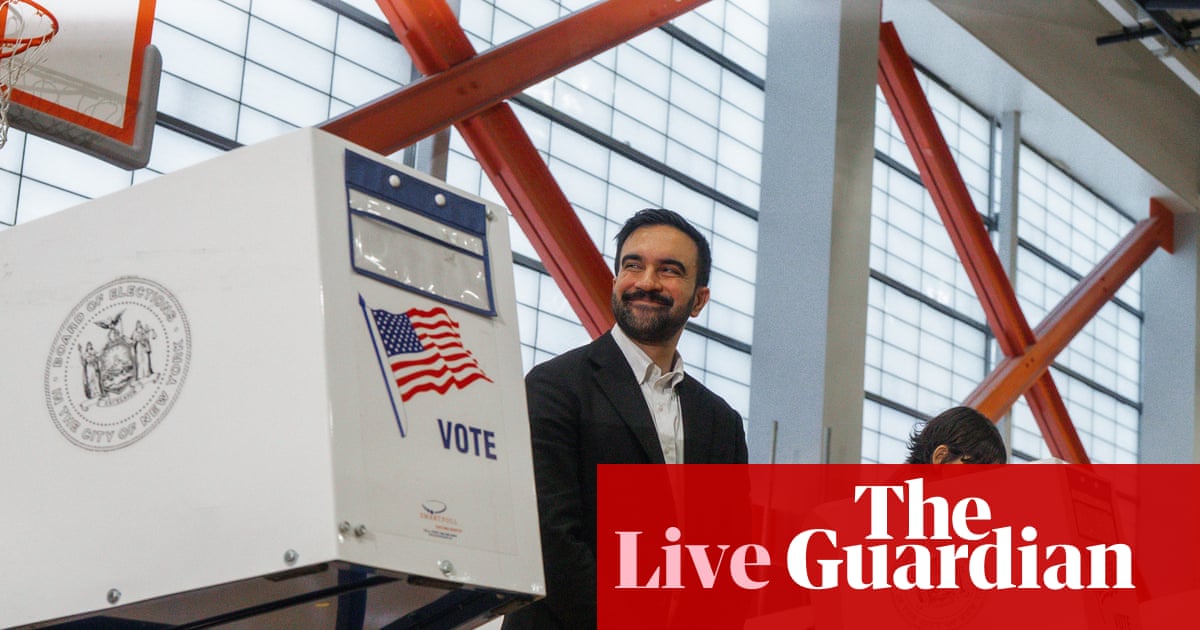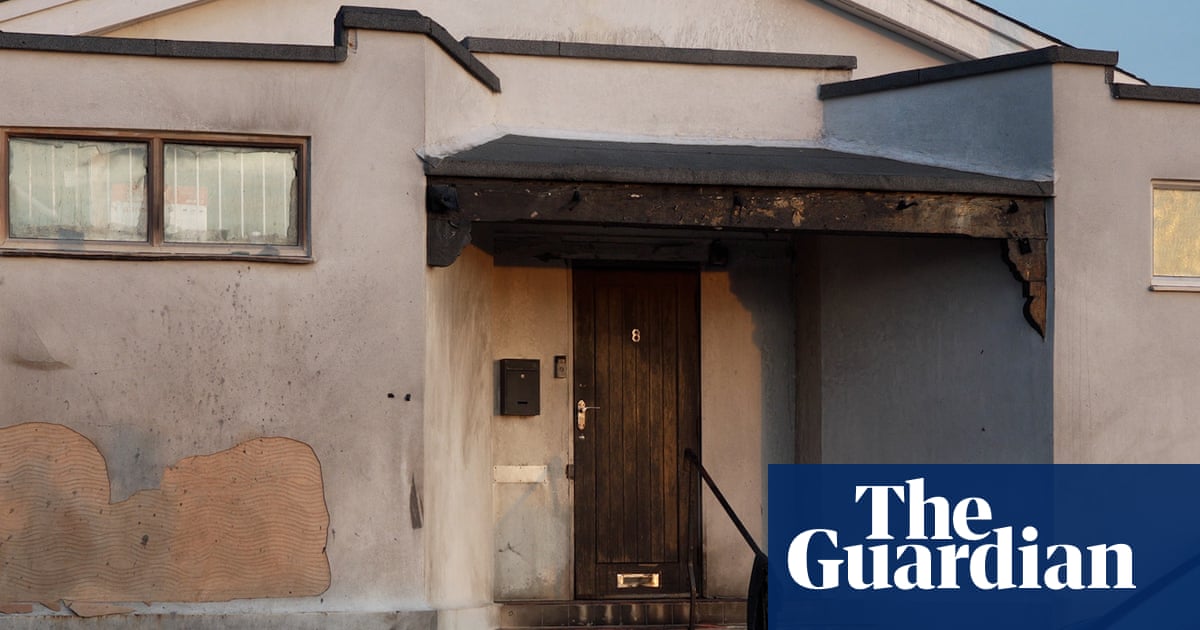Bayrou says lawmakers face 'not a political, but historical question' on future of France
Bayrou begins his speech by saying that some of his critics probably considered his decision to call the vote too risky.
But he says he believes the opposite and “the biggest risk would be to not take any risks, to let things carry on as they are, to play politics as usual.”
He says lawmakers will face “not a political question, but a historical question” that will shape the future of France.
Key events Show key events only Please turn on JavaScript to use this feature
Bayrou warns that the debt means that France works hoping to get richer, but “every year it gets poorer a little more,” as he says it cannot continue.
He compares himself to a captain of a ship that leaks as he says “our duty is first and foremost to make the ship watertight” as quickly as possible.
He says that some want to delay the costly decisions, but he insists “if we want to save the ship, the ship on which we are and our children are, we must act without delay.”
He then talks about the importance of strong France, as he adds that “submission to debt is like submission by military force,” and adds: “In both cases, we lose our freedom.”
French vote of confidence - in pictures
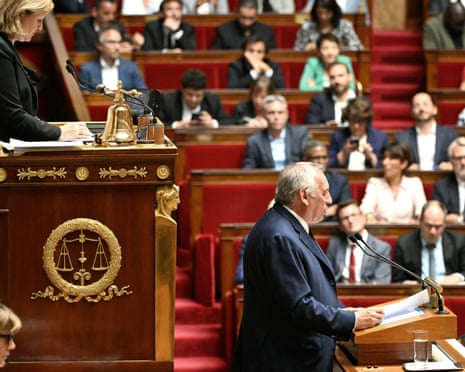


Bayrou stresses the issue of budget deficit and insufficient spending controls is central to all these considerations.
He says that France has ran a budget deficit for 51 years, calling it out “a reflex, or worse, an addiction” of the French state to finance it’s expenses with more money it doesn’t have.
Bayrou says that France faces a number of urgent issues that require urgent answers, pointing to falling productivity, education, migration, and questions on how to keep the French social model alive as it faces growing deficit, demographic issues, the imbalance in the pension system, shortage of housing and increasingly severe environmental and security problems.
“The model needs to be reinvented,” he says.
Bayrou says lawmakers face 'not a political, but historical question' on future of France
Bayrou begins his speech by saying that some of his critics probably considered his decision to call the vote too risky.
But he says he believes the opposite and “the biggest risk would be to not take any risks, to let things carry on as they are, to play politics as usual.”
He says lawmakers will face “not a political question, but a historical question” that will shape the future of France.
French debate on vote of confidence begins
The debate on the government’s motion is beginning right now.
I will bring you all the key updates here.
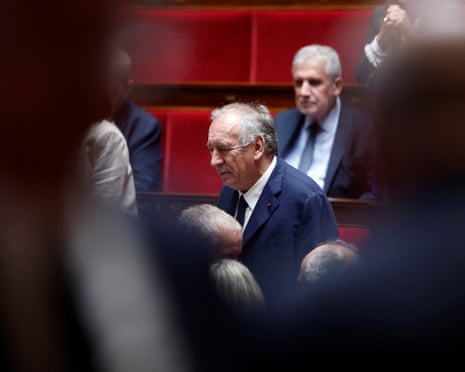
You can also watch it (in French) below.
EU expected to propose new sanctions package on Russia by Friday
And over in Brussels, EU diplomats have been briefing journalists that the European Commission is expected to propose a 19th package of sanctions against Russia by Friday, Reuters said.
The EU has stepped up its listings and is no longer shying away from larger entities in third countries, and it could list banks in two central Asian countries too, they said.
In its 18th package, the bloc listed two Chinese banks and India’s major Nayara refinery at Vadinar.
The diplomats declined to provide further details of the upcoming new package.
Russia's invasion of Ukraine 'just the start,' Germany's Merz warns
Meanwhile over in Berlin, the German chancellor, Friedrich Merz, has warned that Russian president Vladimir Putin’s “imperialist plan wouldn’t end with the conquest of Ukraine but would rather be just the start,” AFP reported.
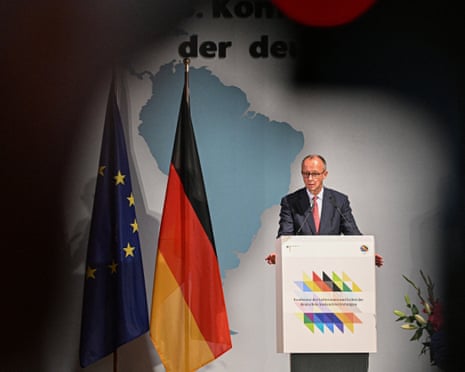
Speaking at a conference of Germany’s ambassadors, Merz said “we are experiencing daily and with increasing intensity hybrid Russian attacks, including on our infrastructure” and pointed to Moscow’s “provocations in the North and Baltic Seas”.
PM Bayrou’s column is now making its way to parliament.
The debate is scheduled to start in under 15 minutes, although on days like this the schedules tend to slip a bit.
I will keep an eye on Paris and bring you all the key updates here.
There really appears to be very little doubt among commentators as to what will be the outcome of today’s vote.
France Info headlines their live broadcast from the parliament simply as “Bayrou’s last hours at Matignon.”
RN to vote against Bayrou, Bardella confirms as he calls for fresh elections
Jordan Bardella, president of the National Rally and a close ally of Marine Le Pen, has just confirmed that their grouping will vote against the prime minister this afternoon.
“Emmanuel Macron holds in his hands the only solution to get our country out of the political impasse: returning to the polls,” he said.
Le Pen's appeal on EU funds conviction to be heard in January 2026
In the meantime, there is also an important update on an appeal brought by French far-right leader Marine Le Pen and other National Party officials against a conviction of misappropriating EU funds.
A Paris court said the appeal will start on 13 January 2026.
'Block Everything' movement highlights unsettled situation in France

Angelique Chrisafis
in Paris
What adds even more to the unsettled situation in France is there is a protest expected to take place next week known as Block Everything, which could mean roads and businesses barricaded amid street demonstrations, which will be followed by union-led hospital and rail strikes in coming weeks.
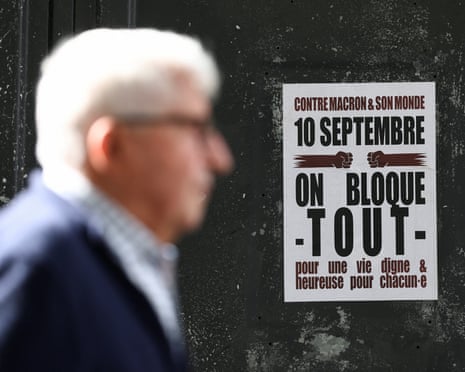
The government fears a re-awakening of the gilets jaunes (yellow vest) anti-government protest movement in 2018 and the 2023 demonstrations against Macron’s increase to the pension age.
Many of the protesters organising online have spoken of economic injustice. While France’s strong social security safety net had traditionally counterbalanced the gaping inequality in some of its European neighbours, research has shown poverty in France is increasing, while the growing concentration of inherited wealth has sparked comparisons to 19th-century France.
Marion Carrel, sociology professor at the University of Lille, said there was a feeling in France of “the little people versus the big”, which gave a “pre-revolutionary” atmosphere to the preparations for protests, even if she felt not everyone struggling to make ends meet would take to the streets.
There’s a strong anger at not being listened to, and a feeling that politics is going nowhere.
Macron has ruled out resigning – there is too much at stake on the international stage with Ukraine and the Middle East. But calls for him to go have come not just from the left’s Jean-Luc Mélenchon, but also from some on the more traditional right.
Politicians on all sides feel their only hope is to harness the anger. Béatrice Bellay, a Socialist MP on the island of Martinique, where there have been protests over the high cost of living, with prices far greater than in mainland France, said:
“There is something in the general atmosphere, which is not just French, but almost global: a kind of cold anger because people see an ultra-free-market capitalist system crushing people and making their life all about survival.
There’s a sense of injustice and that something is wrong with the system.”
French confidence vote does not threaten euro zone stability, Germany says
Amid growing questions about the consequences of today’s vote, a German government spokesperson insisted that even a collapse of the French government would not threaten the stability of the eurozone.
“Eurozone stability depends on many states, on all market participants,” the spokesperson said, reported by Reuters.
“There is no need to question this stability now.”
As my colleagues over on our business live blog are saying, some people seem to have a different view on that as investor confidence dropped sharply in September.
Opposition parties make it clear they will vote against Bayrou's government - analysis

Angelique Chrisafis
in Paris
Opposition parties from the left to the far right have made clear they will vote against the 74-year-old centrist, meaning he and his minority government would fall after only nine months in office.
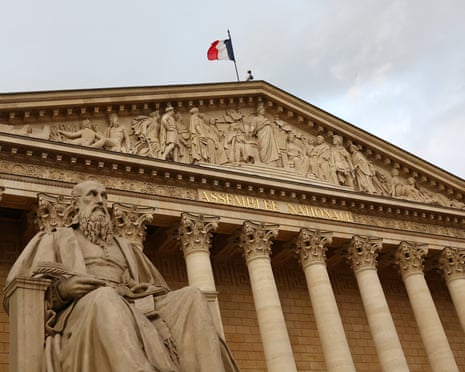
The centrist president, Emmanuel Macron, is then likely to face the challenge of appointing his third prime minister in a year, and the fifth since he began his second term in office in 2022.
As head of state with authority on foreign policy and national security, the president directly appoints a prime minister to run domestic affairs.
But after Macron called a snap parliamentary election last year, the national assembly has been divided into three blocs – left, centre and far right – with no absolute majority, creating a form of political deadlock and disagreement on the budget. This means there is no certainty that a new prime minister would be safe from a similar swift ousting.
Macron could also decide to call a new snap parliamentary election, although he has said he is reluctant to do so.
Bayrou shocked even his centrist allies by calling the surprise confidence vote, saying he needed backing from parliament for austerity measures to reduce the public debt.
A long-term Macron ally, Bayrou was struggling to get support for his unpopular plan for a €44bn (£38bn) budget squeeze and austerity programme to reduce France’s public debt. His budget proposals, including scrapping two public holidays and freezing most welfare spending, were contested across the political spectrum.
Bayrou will make a speech to parliament on Monday afternoon appealing for support and giving his take on the state of the nation and French public debt. This will be followed by speeches from the leaders of every parliamentary grouping, before a ballot of lawmakers.
Opening: Bye-rou?
It’s been a long summer of speculations about the French government’s future amid growing controversies about its plans for the country’s next budget seeking to rein in spiraling state deficit and debts.
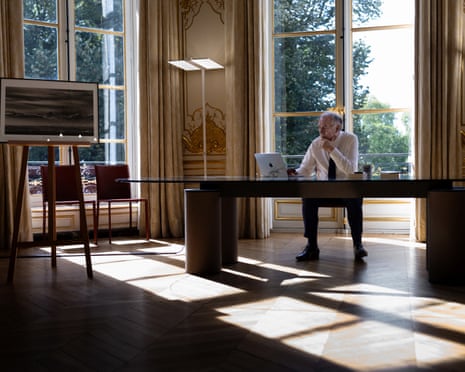
But it will all be clear today as the National Assembly holds a vote of confidence in François Bayrou’s embattled government. According to the declarations from the party leaders, he has little change of securing the majority required to cling on.
Bayrou would be the third prime minister to lose the post in a year, leaving the president, Emmanuel Macron, in a difficult political position and an impossible vacancy to fill. A Verian poll for Le Figaro magazine this weekend found only 15% of French people trust Macron to resolve the political crisis.
For background on how we got to this point, here is a handy explainer from our Angelique Chrisafis in Paris.
The debate is set to start at 2pm BST (3pm Paris), and the key vote is expected to be closer to 6pm BST (7pm Paris).
If everything goes as we expect it to, 74-year-old Bayrou will be gone by the evening, even if technically he will remain in post as a caretaker until his successor can be found.
One of the key questions is about Macron’s next step. Will he appoint a new, potentially younger, prime minister to have another go? Or would he dissolve the parliament and call a snap election in a hope it could resolve the current stand-off?
Let’s see. Lots for us to talk about.
It’s Monday, 8 September 2025, it’s Jakub Krupa here, and this is Europe Live.
Good afternoon.

 1 month ago
53
1 month ago
53
